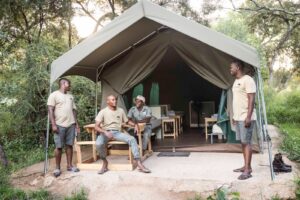Never underestimate what lengthy periods of relaxation in nature can do for your health
I’ll never forget something my dad said to me two years ago while we floated down a canal on a barge in the French countryside. After a few moments of quiet as we looked over the beautiful landscape, he turned and said to me, “I haven’t felt this well in ages.” And I remember thinking how nice that was to hear. Not in the “How are you?”, “I’m well” kind of way, but because it’s not something you hear often from people. And to hear it from a loved one is wonderful – knowing those we love are well and healthy seems to be absolutely everything right now.
Ever since then I have taken notice of when people say they truly feel well and try to understand what it is that makes them feel this way. One place that I do hear this more often than not is when I head down to the camps and talk with our guests. This sentence often comes up at breakfast on the second or third day of their safari and there’s a reason for that.
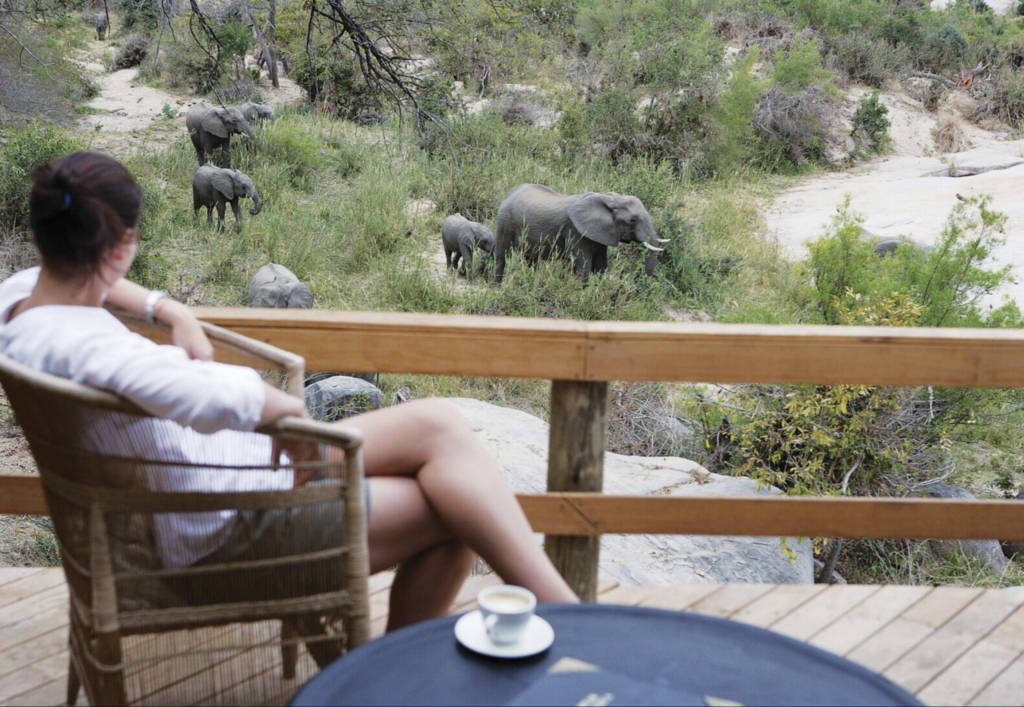
We have believed in the power of safari since 1926. Until recently, we have only really had our own anecdotal proof from our guests as to how their safari has made them feel so well. But science is catching up and we now have the evidence to prove that being in nature, and being on safari, has such a positive effect on mind, body, and soul. We have been studying the psychology of things for centuries and physical wellness and health gets infinite attention. But this wellness of soul seems to be something that people the world over are yearning for right now as, along with our minds and bodies, our souls may have taken more of a beating over the last twelve months than in previous years.
With all that has gone on in the world it’s no wonder there seems to be a collective sense of repression, depression, anxiety, and a general lacklustre feeling. Cue: A Safari to Africa! (Okay, going anywhere in nature will go a long way but a safari at Londolozi has a few secret weapons: Boyd Varty has been at the forefront of wilderness psychology for many years, and the Varty family has been immersed in wilderness for generations. Our guides and trackers have a deep understanding of the importance wilderness plays in wellness. Not to mention big open spaces, silence, and wild African animals). It may not be the silver bullet that everyone is looking for right now (although I could spend time with you around a fire under the stars arguing that it could go a long way towards it) but I believe that the psychology of safari could be the beginnings of the antidote humanity is searching for. Here’s why…
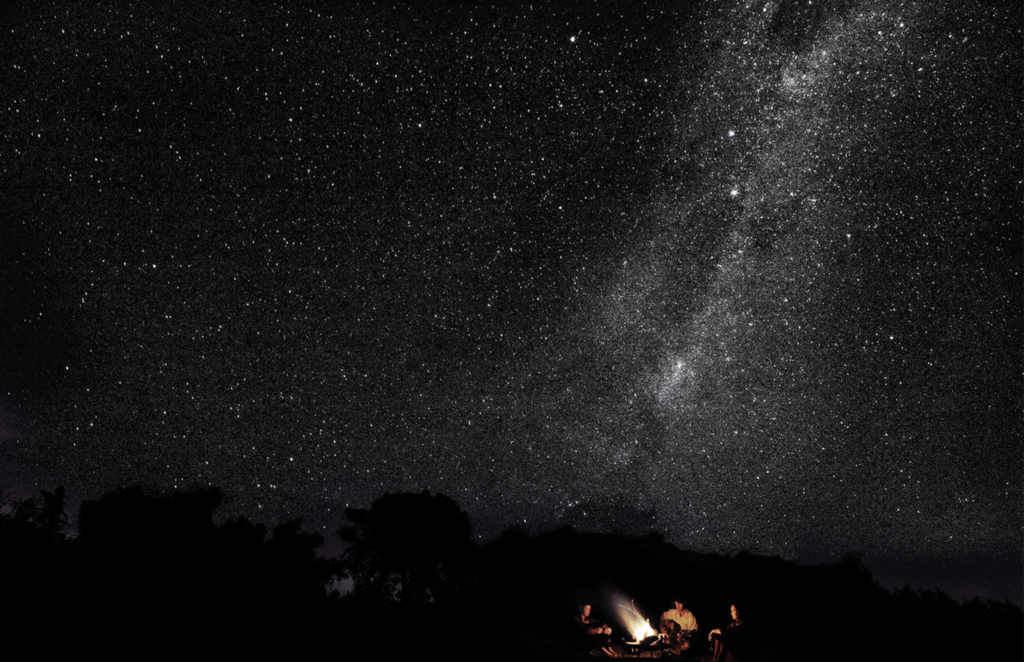
Our guests talk of an altered state of being when they come to visit us. It doesn’t always happen immediately; for most it happens gradually over the course of a day or two. The first afternoon on safari is often all about decompressing after a long journey from wherever they have come. It can all be a little overwhelming: the planning, paying, packing, flying, and arrival. At some point, however, everyone surrenders to nature and what she is beginning to do for them. This is why they have come, whether it was part of their travel plan or not. Safari has a way of working on you. And this is the secret that our many repeat guests and the greater Londolozi family begin to understand the more time they spend in nature with us.
When you come on safari, four things begin to happen quite naturally, completely on their own, without you even really realising. They happen no matter your mindset or spiritual journey…
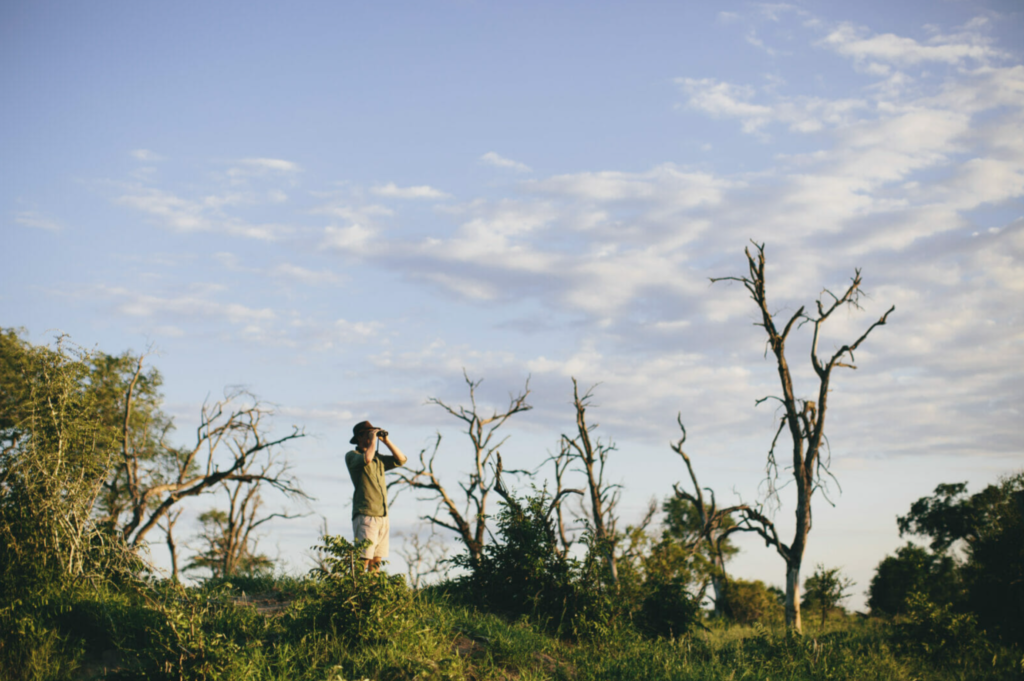
You reset your circadian rhythm.
Rising at dawn and going to bed just after sundown after a day in nature begins to reset the body’s internal clock and return it to a natural, ancient rhythm that we have lost in the business of our ‘normal’ lives. I say ‘normal’ because it’s not actually normal. Going at full pace for the majority of our day, prolonging our waking hours because of obligations and work, and decreasing restful sleep hours is far removed from what our ancestors used to do. While a lot of our guests arrive exhausted from everyday life, they often go on to report some of the best night’s sleep they have ever had at Londolozi after their first 24 hours with us. And while we love to hear it, it comes as no surprise to us. This is all due to the fact that their body is returning to a new ‘old’ normal – rising at dawn, spending more time in firelight, and retiring just after dusk – all resetting their circadian rhythms (the inner clock of the body that triggers sleep at night-time).
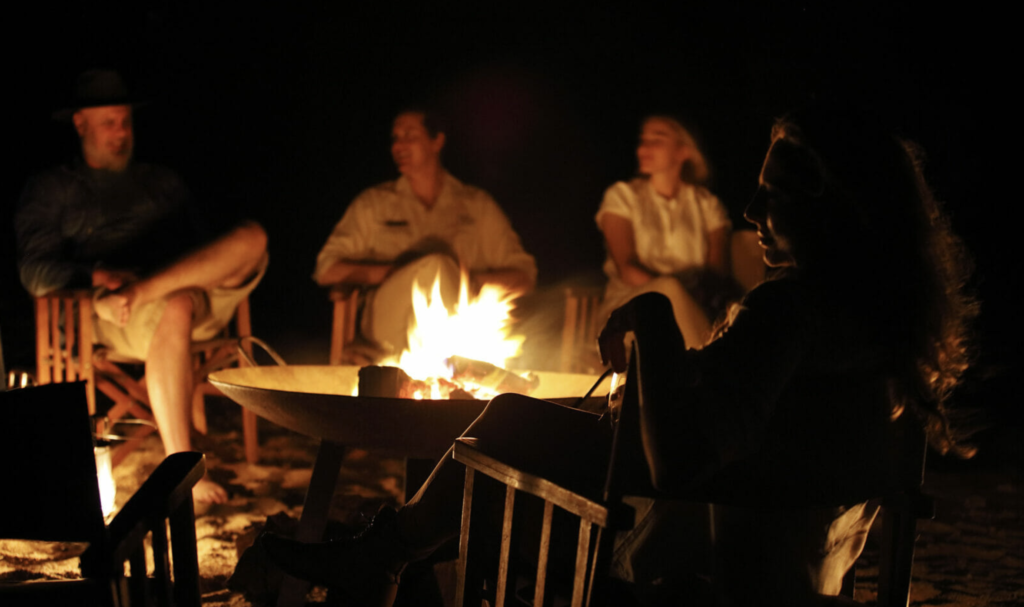
Along with this, another contributing factor to the wonderful night’s sleep is often the fact that screen time – and time on technology in general – is far decreased, replaced with conversation, fireside storytelling, reading, and quiet contemplation. Finally, the art of the afternoon nap also comes into play where many guests find that their body begins to speak to them in new ways – demanding rest. And, not having an excuse not to rest, their body gets what it wants and that all-important restful balance begins to be restored.
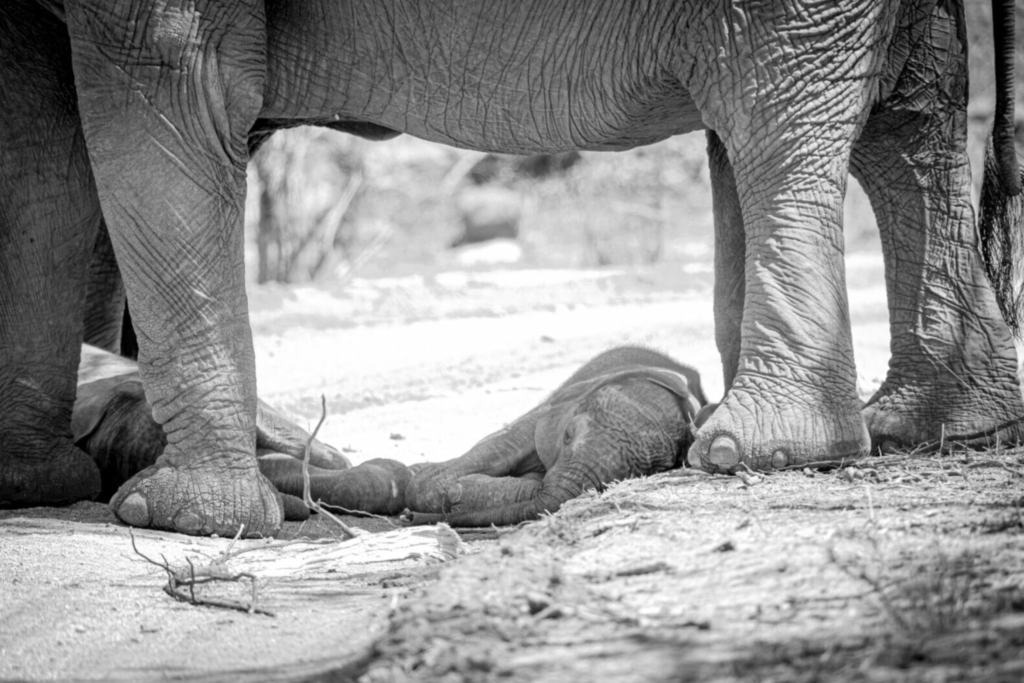
You re-balance your nervous system
Rest, however, is nothing unless the nervous system actually begins to work normally. As a society, it has become the norm to live in a constant state of hyper-alertness. Our nervous systems are always on edge, especially at the moment. The sympathetic nervous system (SNS) is responsible for this and functions like a gas pedal in a car. It triggers the fight or flight response, providing the body with a burst of energy so that it can respond to perceived dangers. This is brilliant (and imperative) when there actually is danger but our nervous system as become so accustomed to detecting everything as harmful these days that it leaves us in a state of nervous system (and adrenal) fatigue, with that gas pedal flat out all the time and the car’s engine (our body) revving at an unsustainable and perpetual full speed. Many people report a state of burnout as a result.
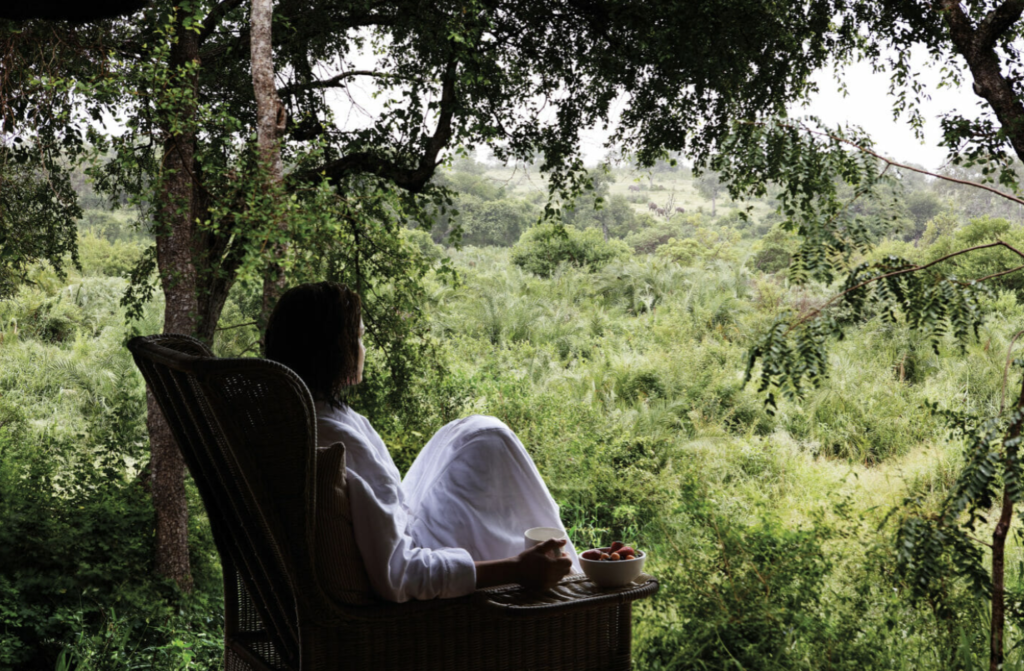
Relaxing this reaction and bringing the body and mind back into a state of relaxation is the key to bringing balance back by stimulating the parasympathetic nervous system (PNS). This is the system that is responsible for the body’s rest and digestion response when the body is relaxed, resting, or feeding. It basically undoes the work of sympathetic division after a stressful situation. While there are multiple ways to activate the PNS, my absolute favourite is the combination of meditation, breathwork, and the soundscapes of nature – a few things in abundance here at Londolozi. The sounds of the savannah in particular have been proven to have a powerful impact on the PNS – according to new studies, it can physically alter the connections in our brain and decrease the body’s sympathetic response. If we can find the ideal background soundscape (almost every moment of our guests’ stay is accompanied by this perfect natural symphony) it could help to promote better rest as well (and by now you know how I feel about good quality rest.)
With the introduction of breathwork and meditation, you also give your body the best chance to begin the process of restoring balance naturally. As the body relaxes, and the PNS switches on, the brain begins to experience Theta and Alpha brain waves during meditation (an EEG report will show you the science of this in no time). These Theta and Alpha waves occur naturally during stages 1 and 2 of the sleep cycle and, during these stages, the PNS is actively restoring homeostasis in the body. In short, if you can stimulate the parasympathetic nervous system effectively, your body begins to heal itself naturally. And at Londolozi, after decades of wilderness experience, we know the way. Adding in a few moments of mindfulness and breath to this will only deepen this experience of rest. And by allowing the body the opportunity to rest and return to a state of calm, we begin to feel a state of wellness again – not only to feel well but to truly be well.
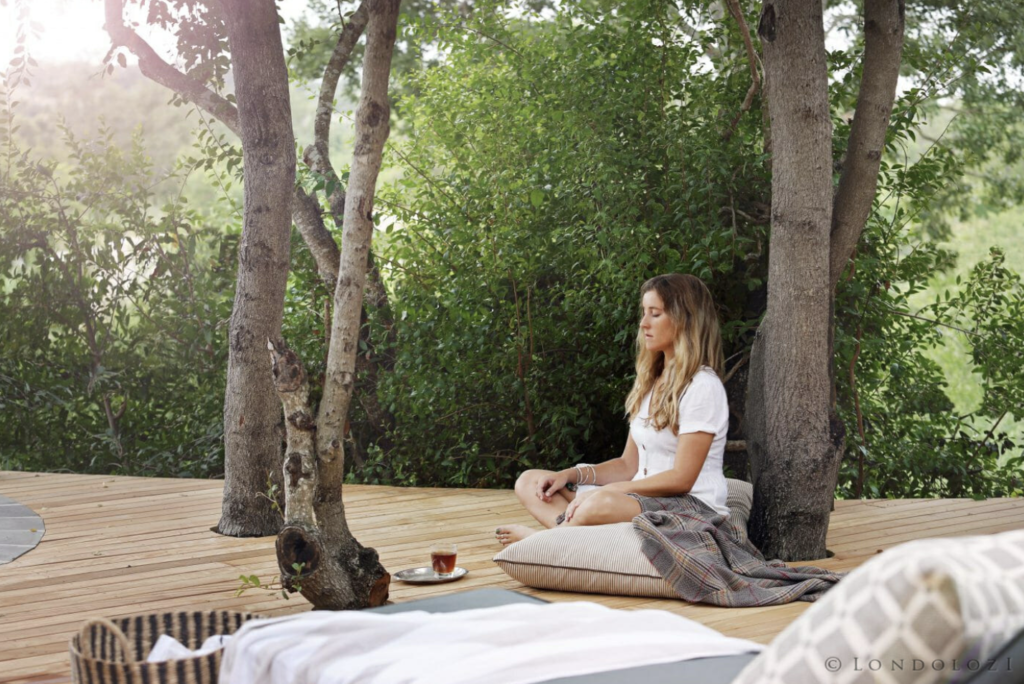
You move from a place of thinking to a place of being
By now your body, mind, and soul should be well on their way to a state of blissful equilibrium. And, as your body’s rhythm normalises and your nervous system re-balances, something incredible begins to happen. You move from a place of thinking to a place of being. The overthinking, over-stimulated monkey mind, overloaded by technology, thoughts and expectation begin to quieten and your body – the most ancient navigational system we have access to – begins to speak. You move from a state of simply coping to a state of feeling again. Athletes and high-performance coaches speak about being ‘in the zone’. Psychologists call it a flow state. At Londolozi, we call it awakening. I believe this is what it means to truly feel alive. And you do this by getting still, by being really present, by connecting back into your senses, and by experiencing uninterrupted silence – all of which we have in abundance at Londolozi.
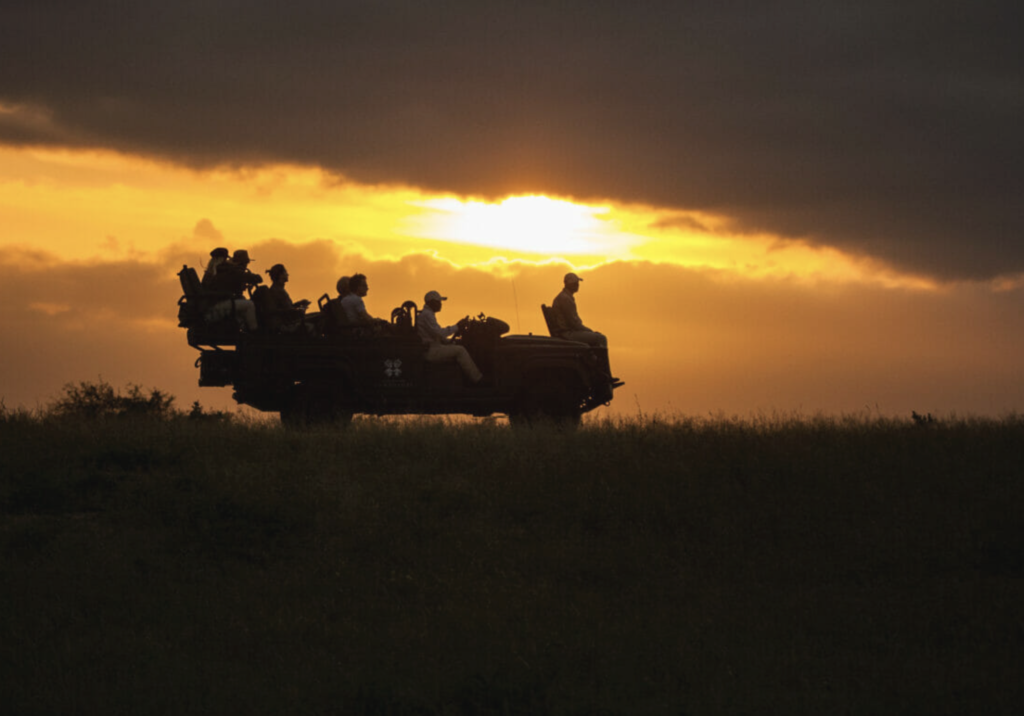
Many of our guests describe this flow state while being on safari. There is something about sitting quietly on an open Land Rover as you traverse the African wilderness, open to the elements with nature washing over you, that shuts off all thinking and makes you feel alive again. You’ll feel your muscles relax and your heart open. The movement of the game drive vehicle becomes a moving meditation – the simplest way to access a contemplative state for complete meditation beginners. Add to this encounters with wild animals in their natural habitat and nature truly begins to show you the beauty of the wordless world all around you.
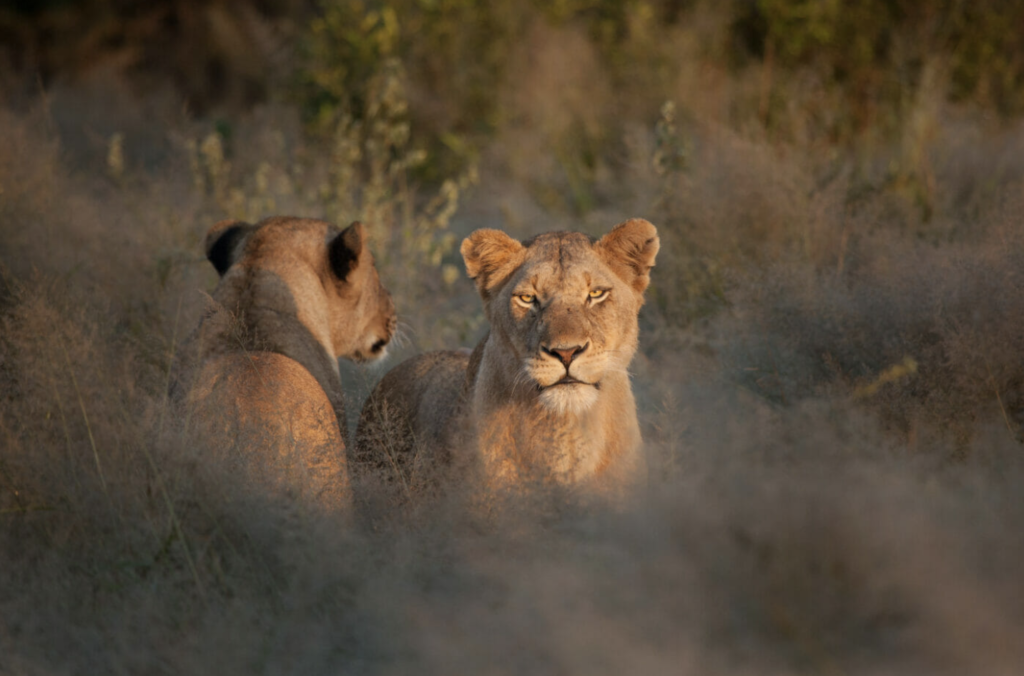
The final piece to connecting back in with your body and letting your mind rest a while is by simply moving the body and connecting to your breath. Yoga, meditation, and breathwork (all offered to our guests, guided by experienced professionals) in the midst of nature has powerful effects on the nervous system. Stimulating the vagus nerve (one of the longest in the body, directly linked to the PNS) brings the body further into a state of rest and digest… taking you from the thinking mind and gently depositing you into a felt experience.
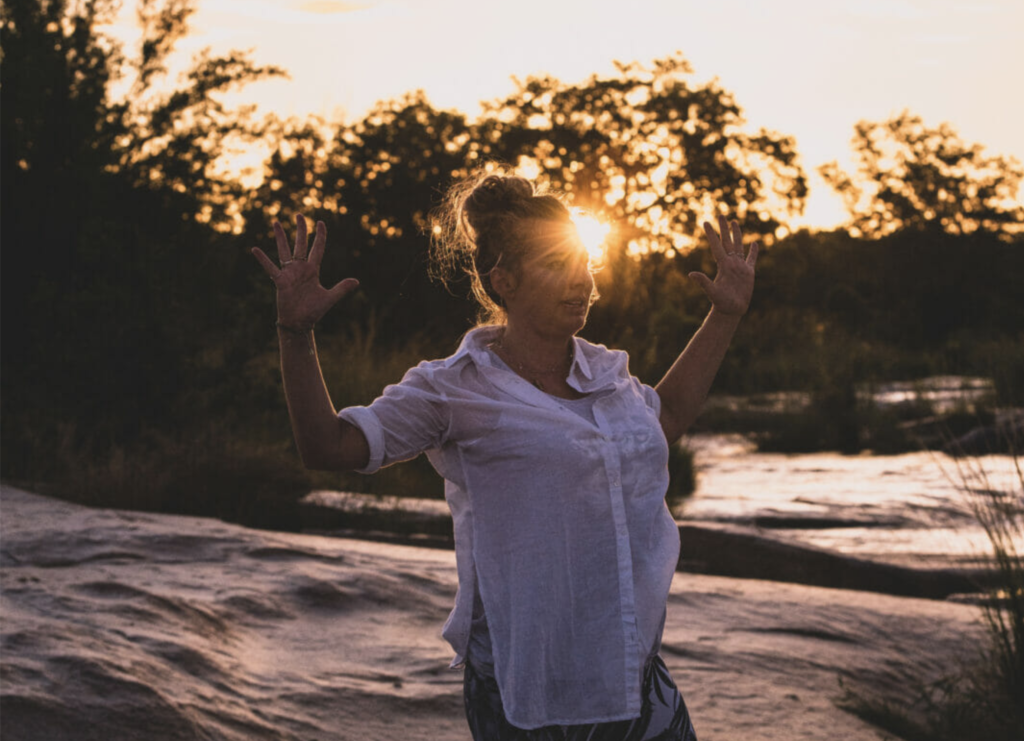
You enter a deep state of belonging
You’ve dropped into a wordless world… what could possibly be next? Here’s where your heart opens and you get the most heady sense of belonging. As your mind-body connection strengthens you begin to feel a part of a greater whole. There is an understanding that we share the same blue dot, the same planet, and the same ecosystem. And that we are, in fact, the same species. We are a shared humanity – the wilderness is part of us and we are part of the wilderness. You begin to understand that wilderness doesn’t belong to one person, one family, or one business, but that it is all of ours. And the custodianship of the wilderness, of all wilderness spaces, of all aspects of nature is the responsibility of all of us.
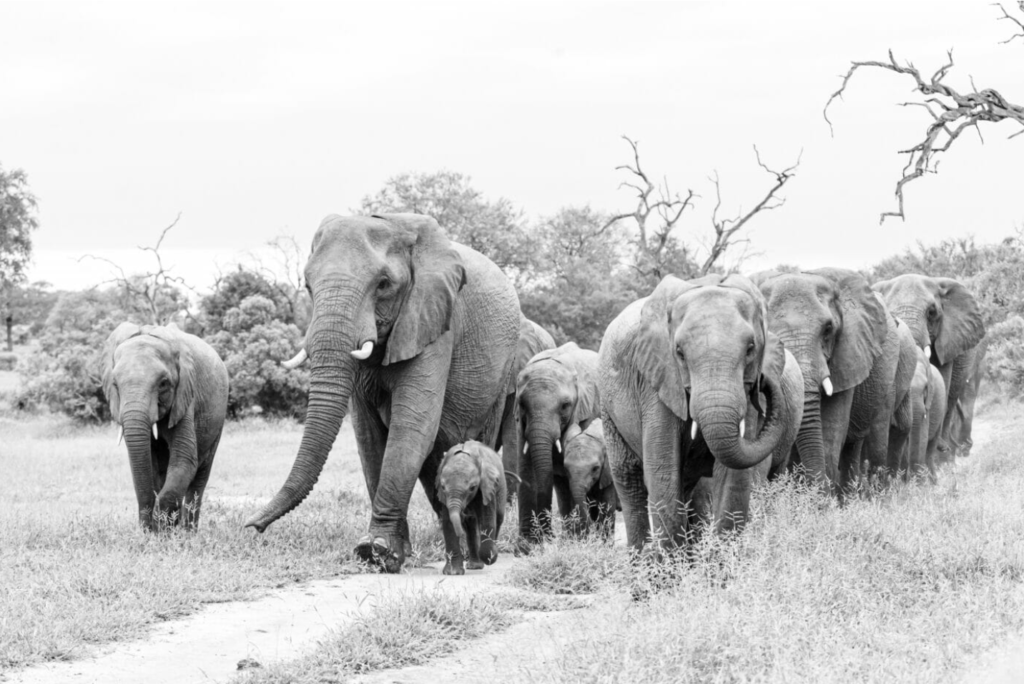
And so the nature fix – that all-important, coveted hit of dopamine, serotonin, oxytocin, endorphins, sunshine, and firelight – is well worth it. But that hit comes with a sense of responsibility, too. Not only to look after spaces like this (and by coming on safari to Londolozi you do just that, for each night you spend with us you have the power to protect) but to look after our own inner landscape, our own true nature, our own wild spaces. In doing so, the feeling that we get while out on safari, while out in nature, can be remembered. And called upon. And shared with others. To connect us all as beings of the universe. And to show those who haven’t experienced the psychology of safari that there is a different way. A better way. A more connected way of being.
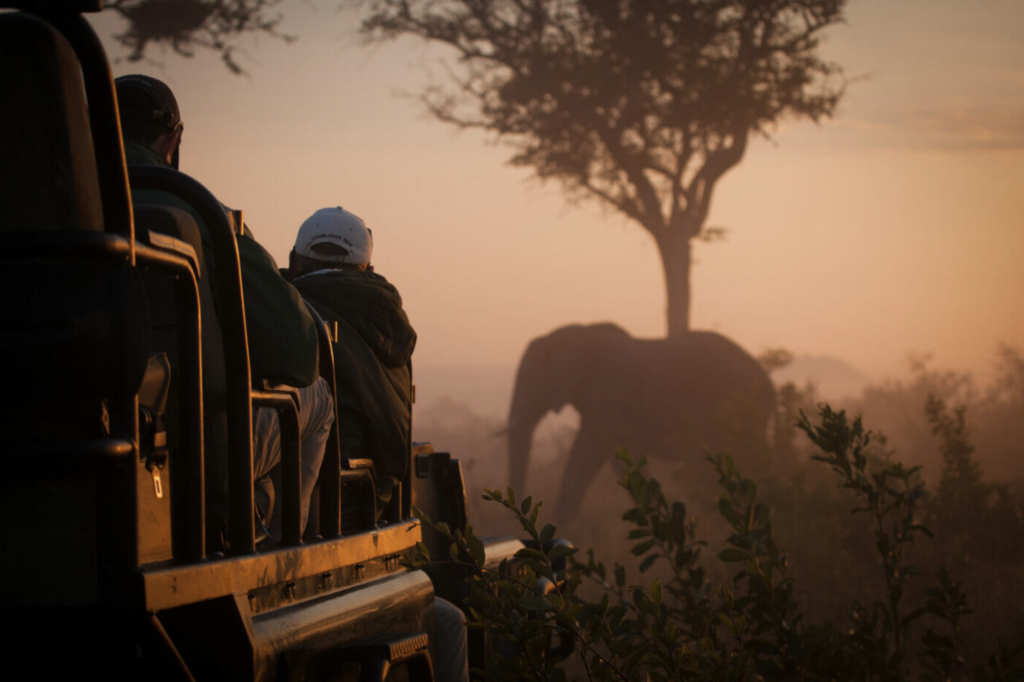
P.S.: Don’t just take my word for it. Come and join some of our repeat guests who have made it a tradition to come on their annual pilgrimage to nature for a well-deserved reset and reboot. I am part of the team that offers one-of-a-kind nature retreats and it is my pleasure – in the truest sense of the word – to see guests return year after year in search of true reunion – not only with nature but with themselves.
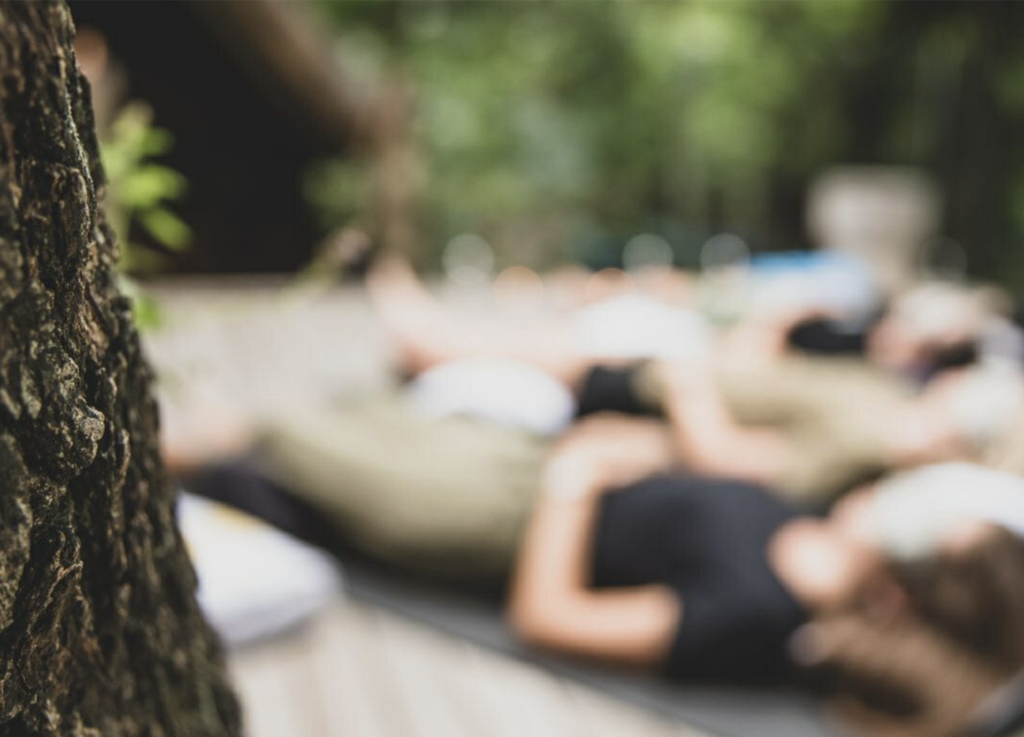
I hope that nature, no matter where you are in the world, can begin to show you the way back. And when you’re ready to experience the psychology of safari for yourself, I’ll meet you…somewhere in the wordless experience that is Londolozi. For more information on wellness on safari we recommend you read the following:
Join our global tribe:
As a Londolozi Ripple Fund supporter you join a global tribe of people who hold the belief that the restoration of the planet can only come out of a profound shift in human consciousness.
We have established a Londolozi Ripple Fund Impact site where you can follow regular updates of projects and donations as they unfold.
For more information or if you would like to make a donation and start your own ripple effect, please reach out to us on ripple@londolozi.co.za

